featured
Marijuana Businesses Are Ineligible For Federal Loans, SBA Clarifies In Updated Guidance Undoing ‘Reckless’ Biden Policies
Published
5 months agoon
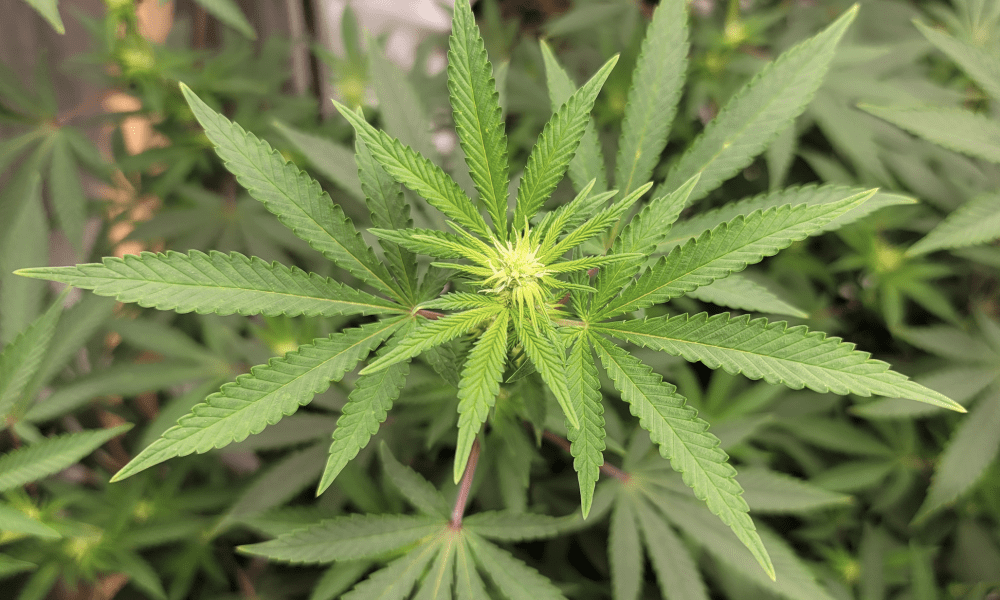
The federal Small Business Administration (SBA) says that, as part of its efforts to undo the Biden administration’s policies on financial lending, it has updated guidance clarifying that marijuana businesses are ineligible for key loan programs.
In a report about the SBA policy changes that was published on Monday, congressional researchers said the agency is updating guidance for “its two largest small business loan programs, the 7(a) and 504 loan guarantee programs,” which includes making clear that the cannabis industry is precluded from those services.
“Other new loan eligibility modifications in the SOP include…reinstating pre-2023 guidance that removes eligibility for businesses with operations related to marijuana, hemp, and cannabidiol,” it says.
While the latest SBA guidance that will take effect on June 1 reinstates similar language around cannabis that had been excluded under the last two versions that came out when Joe Biden was president, legal experts have pointed out that those omissions did not necessarily signal that marijuana businesses were freed up to access federal loans under the program during that period.
In fact, last year a coalition of Democratic senators specifically asked a key committee to include provisions in a spending bill allowing small marijuana businesses to have fair access to SBA services, including the 7(a) and 504 loan programs.
But it’s notable—particularly at a time when the Trump administration’s marijuana policy has come under sharp focus by the industry and advocates—that SBA is now taking proactive steps to highlight the cannabis industry’ ineligibility for federal support.
“The last Administration inherited a thriving 7(a) loan program but left it in critical condition—dismantling every common-sense guardrail that kept it solvent and self-sustaining,” SBA Administrator Kelly Loeffler said in a press release that touches on a number of the current administration’s concerns. “From slashing lender fees to destroying underwriting standards, Biden’s reckless policies have triggered a surge in defaults which now threatens the viability of the program along with its risk to taxpayers.”
“Therefore, the SBA is taking immediate action to restore prudent lending criteria, rein in risk, and save the 7(a) program before it collapses under the weight of bad policy,” she said. “But the Biden Administration’s actions to undermine the financial integrity of the program now threaten to leave taxpayers on the hook.”
Again, while the changes to the guidance overall are characterized as a reversal of a Biden-era policy, it doesn’t appear that the prior administration opened the doors to allow cannabis market access to SBA loan programs, even if the specific language was excluded from the last two versions of the document that were published in 2023.
That said, the new provisions on marijuana do differ from the earlier 2020 version that Trump’s prior administration had enacted. Specifically, they seem to afford more flexibility around loan services for non-plant-touching businesses that are tangentially connected to the cannabis industry.
The prior guidance laid out a detailed definition for what is and isn’t considered an “indirect” marijuana business that’d be ineligible for loans under the 7(a) program, including any company that derives “any of its gross revenue for the next year) from sales to Direct Marijuana Businesses of products or services that could reasonably be determined to aid in the use, growth, enhancement or other development of marijuana.”
“Examples of Indirect Marijuana Businesses include businesses that provide testing services, or sell or install grow lights, hydroponic or other specialized equipment, to one or more Direct Marijuana Businesses; and businesses that advise or counsel Direct Marijuana Businesses on the specific legal, financial/accounting, policy, regulatory or other issues associated with establishing, promoting, or operating a Direct Marijuana Business. However, for purposes of illustration, SBA does not consider a plumber who fixes a sink for a Direct Marijuana Business or a tech support company that repairs a laptop for such a business to be aiding in the use, growth, enhancement, or other development of marijuana.”
The latest SBA guidance stipulates that an ineligible business is one that “grows, produces, processes, distributes, or sells marijuana or marijuana products, edibles, or derivatives, regardless of the amount of such activity,” as well as those that “sell smoking devices, pipes, bongs, inhalants, or other products if the products are primarily intended or designed for marijuana use or if the business markets the products for such use.”
Like the prior version, the new document clarifies that legal hemp businesses are eligible for aid under the program.
“The SBA Lender is responsible for obtaining from the Applicant documentation sufficient to demonstrate that the hemp meets the applicable definitions,” it says. “In addition, for Applicants who will be growing, producing, and/or processing hemp, the SBA Lender is responsible for obtaining from the Applicant documentation of the testing protocols the business will follow to ensure that the hemp and any product(s) they extract or produce from it continue to meet the applicable definitions.”
Overall, SBA’s revised guidelines contribute to a complex, quickly shifting narrative from the Trump administration around cannabis policy.
One of the most recent—and, for the industry, troubling—developments came last week from the U.S. attorney for Washington, D.C., who recently warned a local medical marijuana dispensary about potential federal law violations, hinting at the threat of enforcement action.
While shutting down licensed dispensaries doesn’t “rise to the top” of his priorities, Interim U.S. Attorney for the District of Columbia Ed Martin said his “instinct is that it shouldn’t be in the community.”
Late last month, meanwhile, the White House called the District’s move to decriminalize marijuana an example of a “failed” policy that “opened the door to disorder.”
During Trump’s first term in the White House, he maintained that D.C. rider to keep blocking cannabis sales in his budget requests, as did his successor, former President Joe Biden.
Also during his earlier term, Trump’s first attorney general, Jeff Sessions, rescinded Obama-era guidance that generally advised federal prosecutors not to interfere with state marijuana laws.
As advocates and industry stakeholders have waited to see how the Trump administration will navigate cannabis policy issues during the current term—and whether the president will push for reforms such as rescheduling and banking access as he endorsed on the campaign trail last year—the fact his White House’s first public mention of marijuana in its D.C.-focused fact sheet linked decriminalization to disorder sent a different message.
Meanwhile last week, an activist who received a pardon for a marijuana-related conviction during Trump’s first term paid a visit to the White House, discussing future clemency options with the recently appointed “pardon czar.”
Separately, a marijuana industry-backed political action committee (PAC) has released a series of ads over recent weeks that have attacked Biden’s cannabis policy record as well as the nation of Canada, promoting sometimes misleading claims about the last administration while making the case that Trump can deliver on reform.
Its latest ad accused former President Joe Biden and his Drug Enforcement Administration (DEA) of waging a “deep state war” against medical cannabis patients—but without mentioning that the former president himself initiated the rescheduling process that marijuana companies want to see completed under Trump.
Adding uncertainty to that process, Trump’s pick to lead DEA, Terrance Cole, is on record repeatedly voicing concerns about the dangers of marijuana and linking its use to higher suicide risk among youth.
The current acting administrator, Derek Maltz, has separately made a series of sensational claims about marijuana, calling it a gateway drug that sets children up to use other substances, suggesting marijuana use is linked to school shootings and alleging that the Justice Department “hijacked” the cannabis rescheduling process from DEA.
Earlier this month, DEA notified an agency judge that the marijuana rescheduling process is still on hold—with no future actions currently scheduled as the matter sits before Maltz.
Meanwhile, a recent poll found that a majority of Republicans back a variety of cannabis reforms. And notably, they’re even more supportive of allowing states to legalize marijuana without federal interference compared to the average voter.
The survey showed that majorities of overall voters (70 percent) and GOP voters (67 percent) back rescheduling cannabis.
The survey was first noted by CNN in a report last month that quoted a White House spokesperson saying the administration currently has “no action” planned on marijuana reform proposals, including those like rescheduling and industry banking access that Trump endorsed on the campaign trail last year.
The White House has also said that marijuana rescheduling is not a part of Trump’s drug policy priorities for the first year of his second term—a disappointment for advocates and stakeholders who hoped to see him take speedier action.
Meanwhile, former marijuana prisoners who received clemency from Trump during his first term staged an event outside the White House earlier this month, expressing gratitude for the relief they were given and calling on the new administration to grant the same kind of help to others who are still behind bars for cannabis.
Here’s the 2025 SBA guidance concerning cannabis lending eligibility:
Types of Ineligible Businesses
The SBA Lender must determine whether the Applicant is one of the types of businesses listed as ineligible (13 CFR § 120.110). Certain business types appearing on this list may be eligible under limited circumstances, as discussed below.
…
8. Businesses that are engaged in any activity that is illegal under federal, state, or local law are not eligible. 13 CFR § 120.110 (h)
a. Applicants that are engaged in illegal activity under federal, state, or local law are not eligible. This includes Applicants who make, sell, service, distribute, or promote products or services used in connection with illegal activity, unless such use can be shown to be completely outside of the Applicant’s intended market. If the business sells products made from hemp or CBD or devices associated with consuming marijuana, the SBA Lender is responsible for obtaining from the Applicant documentation sufficient to demonstrate that the products sold by the business are not illegal under federal, state, or local laws.
b. Marijuana: Because federal law prohibits the distribution and sale of marijuana, financial transactions involving a marijuana-related business would generally involve funds derived from illegal activity. Therefore, businesses that derive revenue from marijuana-related activities may be ineligible for SBA financial assistance. The nature of the business’s specific operations determines whether a business is eligible. The following businesses are ineligible: a business that grows, produces, processes, distributes, or sells marijuana or marijuana products, edibles, or derivatives, regardless of the amount of such activity. This also includes businesses that sell smoking devices, pipes, bongs, inhalants, or other products if the products are primarily intended or designed for marijuana use or if the business markets the products for such use. This applies to recreational use and medical use even if the business is legal under local or state law where the Applicant is or will be located.
c. Hemp: Consistent with the Agriculture Improvement Act of 2018 (Public Law No. 115-334), a business that grows, produces, processes, distributes or sells products made from hemp is eligible only if the hemp meets the definition in section 297A of the Agricultural Marketing Act of 1946 and any applicable state definition of hemp. (It is important to note that some states define hemp as having a lower level of THC than the federal definition.) The SBA Lender is responsible for obtaining from the Applicant documentation sufficient to demonstrate that the hemp meets the applicable definitions. In addition, for Applicants who will be growing, producing, and/or processing hemp, the SBA Lender is responsible for obtaining from the Applicant documentation of the testing protocols the business will follow to ensure that the hemp and any product(s) they extract or produce from it continue to meet the applicable definitions.
d. Cannabidiol (CBD): The factors to be considered in determining the eligibility of CBD-related businesses include, but are not limited to, the following:
i. Where the CBD is derived from (whether from hemp or marijuana);
ii. What types of products are being produced and/or sold (e.g., topical products or products to be ingested). Based on FDA guidance, it is illegal under the Food, Drug, & Cosmetic Act to add CBD to any food (human or animal), any dietary supplements, and certain cosmetics because cannabidiol is the active ingredient of an FDA-approved drug and has not been approved for other use. Please refer to FDA Regulation of Cannabis and Cannabis-Derived Products, Including Cannabidiol (CBD);
iii. What health claims, if any, are being made about the product(s); and
iv. Whether all products being produced and/or sold comply with all applicable federal, state, and local laws and regulations, including those issued by the FDA.
v. The SBA Lender is responsible for obtaining from the Applicant documentation sufficient to demonstrate that the products containing CBD being sold by the Applicant comply with all applicable federal, state, and local laws and regulations, including necessary certificates of lab analysis.
Here’s the prior version of the guidance from 2020:
Types of Ineligible Businesses
The SBA Lender must determine whether the Applicant is one of the types of businesses listed as ineligible in SBA regulations (13 CFR § 120.110). Certain business types appearing on this list may be eligible under limited circumstances, as discussed below.
…
8. Businesses Engaged in any Illegal Activity 13 CFR § 120.110 (h)
…
b. Marijuana-Related Businesses:
i. Because federal law prohibits the distribution and sale of marijuana, financial transactions involving a marijuana-related business would generally involve funds derived from illegal activity. Therefore, businesses that derive revenue from marijuana-related activities or that support the end-use of marijuana may be ineligible for SBA financial assistance.
ii. Whether a business is eligible is determined by the nature of the business’s specific operations. The following businesses are ineligible:
a) “Direct Marijuana Business” – a business that grows, produces, processes, distributes, or sells marijuana or marijuana products, edibles, or derivatives, regardless of the amount of such activity. This applies to recreational use and medical use even if the business is legal under local or state law where the Applicant is or will be located.
b) “Indirect Marijuana Business” – a business that derived any of its gross revenue for the previous year (or, if a Start-Up Business, projects to derive any of its gross revenue for the next year) from sales to Direct Marijuana Businesses of products or services that could reasonably be determined to aid in the use, growth, enhancement or other development of marijuana. Examples of Indirect Marijuana Businesses include businesses that provide testing services, or sell or install grow lights, hydroponic or other specialized equipment, to one or more Direct Marijuana Businesses; and businesses that advise or counsel Direct Marijuana Businesses on the specific legal, financial/accounting, policy, regulatory or other issues associated with establishing, promoting, or operating a Direct Marijuana Business. However, for purposes of illustration, SBA does not consider a plumber who fixes a sink for a Direct Marijuana Business or a tech support company that repairs a laptop for such a business to be aiding in the use, growth, enhancement, or other development of marijuana.
Indirect Marijuana Businesses also include businesses that sell smoking devices, pipes, bongs, inhalants, or other products if the products are primarily intended or designed for marijuana use or if the business markets the products for such use.
iii. Consistent with the Agriculture Improvement Act of 2018 (Public Law No. 115-334), a business that grows, produces, processes, distributes or sells products made from hemp is eligible only if the hemp meets the definition in section 297A of the Agricultural Marketing Act of 1946 and any applicable state definition of hemp. (It is important to note that some states define hemp as having a lower level of THC than the federal definition.)
The SBA Lender is responsible for obtaining from the Applicant documentation sufficient to demonstrate that the hemp meets the applicable definitions. In addition, for Applicants who will be growing, producing, and/or processing hemp, the SBA Lender is responsible for obtaining from the Applicant documentation of the testing protocols the business will follow to ensure that the hemp and any product(s) they extract or produce from it continue to meet the applicable definitions.
iv. Cannabidiol (CBD) related businesses: The factors to be considered in determining the eligibility of CBD-related businesses include, but are not limited to, the following:
a) Where the CBD is derived from (hemp or marijuana);
b) What types of products are being produced and/or sold (e.g., topical products or products to be ingested);
c) What health claims, if any, are being made about the product(s); and
d) Whether all products being produced and/or sold comply with all applicable federal laws and regulations, including those issued by the Food and Drug Administration.

Author: mscannabiz.com
MScannaBIZ for all you Mississippi Cannabis News and Information.
You may like
-
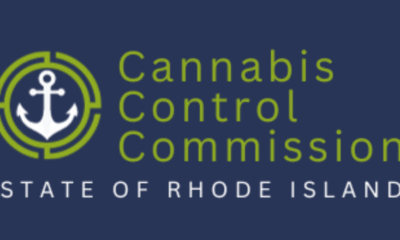

Rhode Island Opens Applications for 24 Adult-Use Dispensary Licenses
-
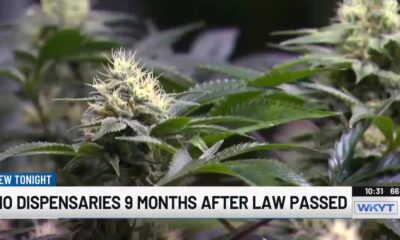

Kentucky still waiting on medical marijuana dispensaries 9 months after law passed
-


Can LSD Battle Anxiety? The Answer Is Yes, According to Science
-


Six hurt in shooting at marijuana event in SF's Bayview
-


Kentucky Medical Marijuana Dispensaries Should Be Stocked With Products Ready For Sale By Next Month, Top State Official Says
-
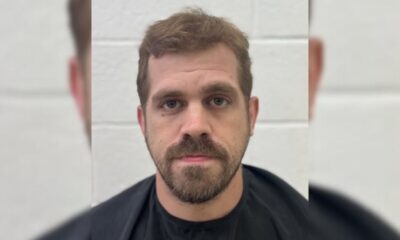

Deputies: 3,500 child sex abuse images, marijuana grow operation found in NC home raid
featured
Rhode Island Opens Applications for 24 Adult-Use Dispensary Licenses
Published
9 minutes agoon
September 15, 2025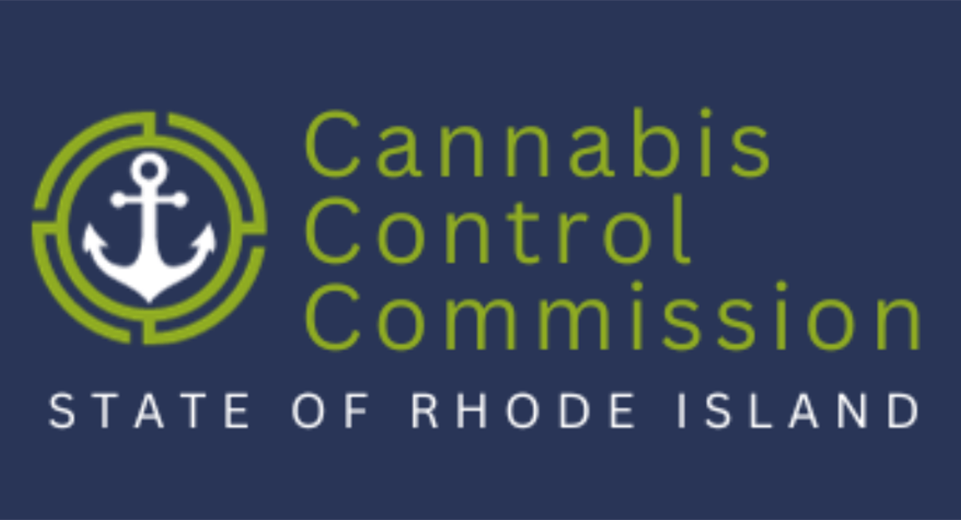
[PRESS RELEASE] – WARWICK, R.I., Sept. 12, 2025 – The Cannabis Control Commission (CCC) opened the application period for adult-use cannabis retail licenses, marking the beginning of the largest expansion to Rhode Island’s cannabis industry. The commission is authorized under the Rhode Island Cannabis Act to license up to 24 retail establishments statewide, divided equally across six geographic zones, making this announcement a defining moment in shaping the state’s cannabis marketplace.
“Today’s announcement represents years of work, collaboration and preparation to ensure Rhode Island has a cannabis marketplace that is safe, transparent, and equitable,” CCC Chairperson Kim Ahern said. “The release of this application and launch of our submission portal is not only about opening doors for businesses but about creating meaningful opportunities for Rhode Islanders while keeping public health and public safety at the center of everything we do.”
With only 24 retail licenses available statewide, the launch of the application process is expected to draw significant interest from prospective applicants. Together with the Social Equity Applicant Status Certification Portal, which opened in August, the application process reflects the CCC’s deliberate steps toward building a cannabis industry that prioritizes economic opportunity, equity and fairness in Rhode Island.
“Rhode Island’s cannabis market is poised for growth, and this application is helping us do exactly that,” Gov. Dan McKee said. “As we expand the cannabis industry here in the Ocean State, we’re opening the doors to new investment, new good-paying jobs, and new opportunities for our economy.”
Adult-use retail licenses will authorize sales of cannabis products to adults 21 and older. By releasing the application and opening the submission portal simultaneously, the commission is providing applicants with a transparent process while reinforcing its commitment to accountability and access.
“Today’s release of the adult-use retail license application reflects the commission’s commitment to equity and accountability,” Commissioner Layi Oduyingbo said. “This framework provides applicants with the information they need while reinforcing our responsibility to safeguard public health and consumer safety.”
Commissioner Robert Jacquard said, “The commission aims to make this application process as business-friendly as possible, while upholding standards that will protect public health.”
To ensure the process is fair and accessible, the commission and Cannabis Office will provide technical assistance resources and ongoing guidance for prospective applicants. Applications will be accepted until 4 p.m. on Dec. 29, 2025.
“This is a milestone that reflects the dedication and perseverance of so many people,” Cannabis Office Administrator Michelle Reddish said. “From lawmakers and advocates to community members and our dedicated staff, countless individuals have helped build the foundation for this moment. By publishing the application today, we are taking a historic step toward building a cannabis marketplace that serves consumers, supports equity and advances public health in Rhode Island.”
The adult-use retail license application is available on the commission’s website at www.ccc.ri.gov/auapp.

Author: mscannabiz.com
MScannaBIZ for all you Mississippi Cannabis News and Information.
featured
Can LSD Battle Anxiety? The Answer Is Yes, According to Science
Published
1 hour agoon
September 15, 2025
Hands down, one of the drugs that has received the worst press in the decades marked by the War on Drugs has been LSD. All sorts of things have been said about this molecule: that it drives you crazy, or suicidal, that it remains stored in your body forever, that it irreparably damages the brain… Fortunately, we now have professionals investigating the matter, with a scientific perspective rather than a moralistic or prohibitionist one.
One of the latest findings on the subject seems to directly contradict one of the great myths about LSD: instead of leading to insanity, this compound could reduce anxiety. This is according to a study by Mind Medicine (MindMed) Inc., a biopharmaceutical company that has been researching psychedelic compounds for mental health for many years. While the preliminary results were released in 2022, they were officially published this month in the Journal of the American Medical Association.
This isn’t the first time MindMed has embarked on studying this topic: it had already achieved positive results with LSD for anxiety on another occasion. In fact, the FDA granted Breakthrough Therapy designation for generalized anxiety disorder (GAD) to the company’s proprietary drug candidate, MM120, a pharmacologically optimized formulation of LSD.
LSD and Anxiety: What the MindMed Study Says
The company conducted a multicenter, randomized, double-blind, placebo-controlled Phase 2b study at 22 outpatient psychiatric research centers in the US. The effects of a single dose of MM120 (lysergide D-tartrate, LSD) were analyzed in 198 adults with moderate to severe generalized anxiety disorder (GAD). Participants experienced sustained improvements in their condition over the 12-week observation period.
According to the company’s press release, this is the first randomized, placebo-controlled trial evaluating a single treatment at four dose levels (25, 50, 100, or 200 µg), without any psychotherapeutic intervention.
The optimal dose of MM120 was determined at 100 µg. This demonstrated a “clinically and statistically significant improvement vs. placebo, and a 65% clinical response rate and 48% clinical remission rate” at the end of the experiment.
Likewise, tolerance to the medication was positive, with the expected adverse effects of an LSD experience remaining mild to moderate and lasting only one day.
During the study, participants receiving medication for their condition had to discontinue such treatment under the supervision of the study professionals. Furthermore, on the day of dosing, they were offered “standardized music and eyeshades and could lie down, move freely around the room, read, write, or draw.” It should be noted that the study protocol explicitly prohibited participation in psychotherapy.
Dr. Maurizio Fava, one of the study’s authors, stated that “this study is a true turning point in the field of psychiatry… For the first time, LSD has been studied with modern scientific rigor, and the results are both clinically meaningful and potentially paradigm-shifting for the treatment of GAD. GAD affects 26 million adults in the U.S., yet no new medications have been approved since 2007—and first-line treatments fail 50% of patients.”
Thus, scientific innovation continues to advance against the willful ignorance of prohibitionists, working tirelessly to ensure patients have access to the relief that traditional therapies fail to provide.
This article was first published on El Planteo.

Author: mscannabiz.com
MScannaBIZ for all you Mississippi Cannabis News and Information.
featured
Kentucky Medical Marijuana Dispensaries Should Be Stocked With Products Ready For Sale By Next Month, Top State Official Says
Published
2 hours agoon
September 15, 2025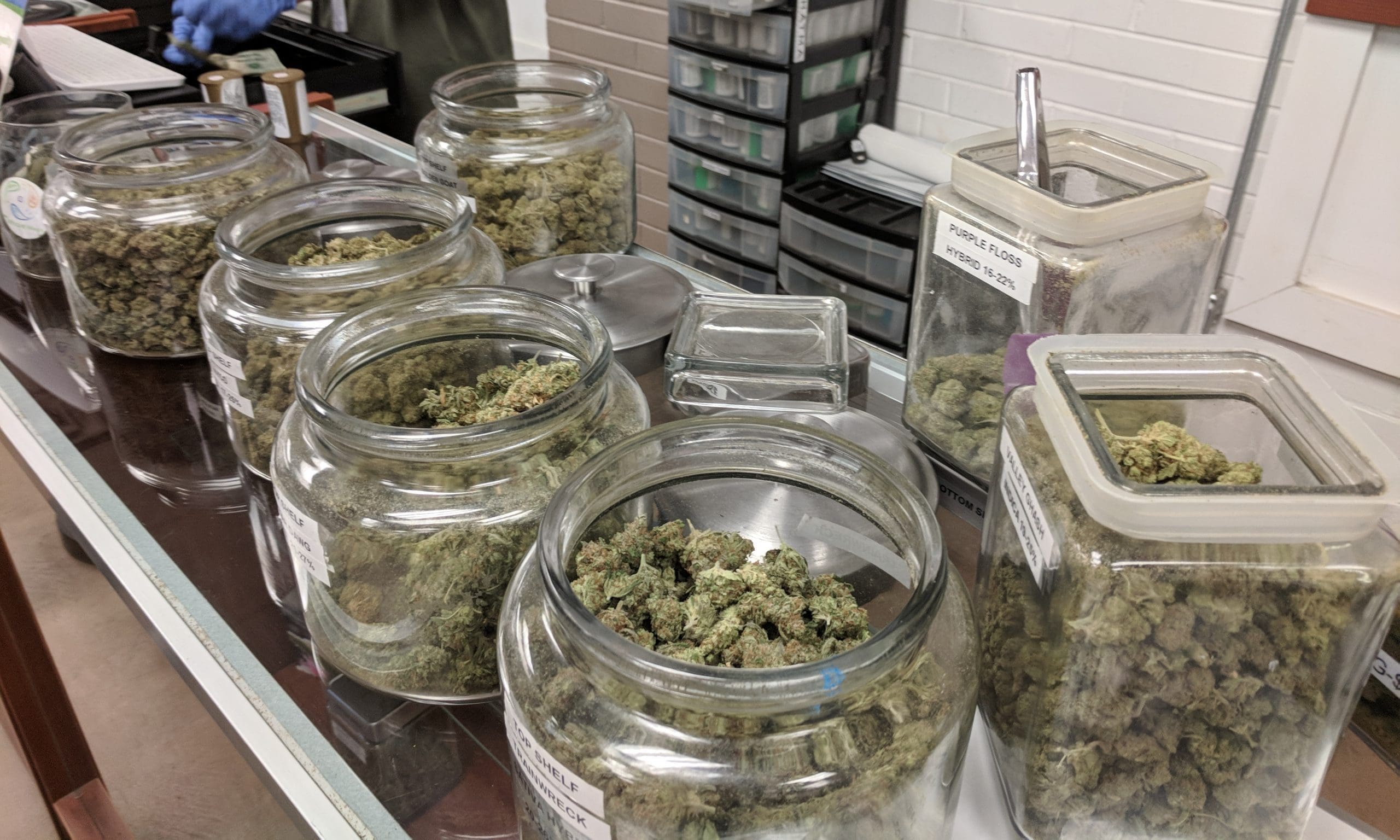
Kentucky’s top medical marijuana regulator said he expects that dispensary shelves will be stocked with products ready for sale to patients by next month.
Two of the state’s 16 medical cannabis cultivators are now operational, according to Cannon Armstrong, executive director of Kentucky’s Office of Medical Cannabis (OMC).
“If everything goes according to plan for them, I think that they’ll have medical cannabis that will be ready to harvest and be put on the shelf, you know, by October,” he told Spectrum News 1. “So we’re moving and we’re finally getting to a point where we’re, these patients are going to receive this medication sooner than later.”
Armstrong predicted that the first sales will likely occur at a dispensary in Beaver Dam called The Post.
“I think you’re going to see the first products out there based upon just how it’s shaken out,” he said. “You know, someone may step up their timeline and may get out there before that or get product from there and place it somewhere else in the state.”
As of now, OMC has approved more than 19,000 patients certifications, Armstrong said.
He added that medical cannabis supplies should be relatively scarce as the market first launches, and said that as a result initial prices will be higher than they eventually will be.
Earlier this month, Gov. Andy Beshear (D) said he thought medical marijuana would be available to Kentucky patients by the end of 2025.
“The medical marijuana program is moving forward,” he said at a press briefing at the time.
“I think most of our dispensaries now have their home address [and] are set about where they’re going to be, but [for] some of the inspections that have to happen in dispensaries, they have to have product that’s there,” he said. “So I do believe they’ll be operating before the end of the year.”
Those comments came roughly a month after the governor announced that the state’s first medical cannabis dispensary has officially been approved for operations, calling it “another step forward as we work to ensure Kentuckians with serious medical conditions have access to the medicine they need and deserve.
He previously touted an earlier “milestone” in the state’s forthcoming medical marijuana program, with a licensed cultivator producing “the first medical cannabis inventory in Kentucky history.”
Beshear’s office has said that other cannabis licensees, including processors and testing labs, are expected to become operational soon.
In July, Beshear sent a letter to President Donald Trump, urging him to reject congressional spending bill provisions that would prevent the Justice Department from rescheduling marijuana.
In the letter to the president, he emphasized that a pending proposal to move cannabis from Schedule I to Schedule III under the Controlled Substances Act (CSA) is something “you supported in your presidential campaign.”
“That process should be allowed to play out. Americans deserve leadership that won’t move the goalposts on them in the middle of the game,” Beshear said, noting that he was among the tens of thousands who submitted public comments in favor of the reform after it was initiated under the Biden administration, “demonstrating broad public interest in rescheduling.”
“I joined that effort because this is about helping people. Rescheduling would provide suffering patients the relief they need,” the governor said. “It would ensure communities are safer—because legal medical products reduce the illicit market. It would provide new, meaningful research on health benefits.”
Beshear also mentioned a letter to DEA he signed onto last year urging rescheduling, “because the jury is no longer out on marijuana. It has medical benefits.”
Back on the state level, the governor recently said he acknowledges that “it’s taken longer than we would have liked” to stand up the industry since he signed medical marijuana legalization into law in 2023.
In recognition of that delayed implementation, he recently signed an executive order to waive renewal fees for patients who get their cards this year so that they don’t get charged again before retailers open. And another order he signed providing protections for qualified patients who obtain medical marijuana outside of Kentucky “will stay in place.”
Beshear separately announced in May that the state has launched a new online directory that lets people see where medical cannabis dispensaries will be opening near them.
He emphasized that the state has been working to deliver access to patients “at the earliest possible date,” and that involved expediting the licensing process. The governor in January also ceremonially awarded the commonwealth’s first medical marijuana cards.
—
Marijuana Moment is tracking hundreds of cannabis, psychedelics and drug policy bills in state legislatures and Congress this year. Patreon supporters pledging at least $25/month get access to our interactive maps, charts and hearing calendar so they don’t miss any developments.![]()
Learn more about our marijuana bill tracker and become a supporter on Patreon to get access.
—
Meanwhile, the governor sent a letter to Kentucky’s congressional delegation in January, “urging them to take decisive action to protect the constitutional rights of our law abiding medical cannabis patients” by repealing the federal ban on gun possession by people who use marijuana.
That came after bipartisan Kentucky senators filed legislation that similarly called on the state’s federal representatives to take corrective action, which Beshear said he supports but would like to see even more sweeping change on the federal level.
The federal Bureau of Alcohol, Tobacco, Firearms and Explosives (ATF) warned Kentucky residents late last year that, if they choose to participate in the state’s medical marijuana program, they will be prohibited from buying or possessing firearms under federal law.
As far as the implementation of the state’s medical cannabis law goes, Beshear said in his State of the Commonwealth address in January that patients will have access to cannabis sometime “this year.” He also later shared tips for patients to find a doctor and get registered to participate in the cannabis program.
Health practitioners have been able to start assessing patients for recommendations since the beginning of December.
While there currently aren’t any up-and-running dispensaries available to patients, Beshear has further affirmed that an executive order he signed in 2023 will stay in effect in the interim, protecting patients who possess medical cannabis purchased at out-of-state licensed retailers.
During last year’s November election, Kentucky also saw more than 100 cities and counties approve local ordinances to allow medical cannabis businesses in their jurisdictions. The governor said the election results demonstrate that “the jury is no longer out” on the issue that is clearly supported by voters across partisan and geographical lines.

Author: mscannabiz.com
MScannaBIZ for all you Mississippi Cannabis News and Information.

Rhode Island Opens Applications for 24 Adult-Use Dispensary Licenses

Kentucky still waiting on medical marijuana dispensaries 9 months after law passed

Can LSD Battle Anxiety? The Answer Is Yes, According to Science

Six hurt in shooting at marijuana event in SF's Bayview

Kentucky Medical Marijuana Dispensaries Should Be Stocked With Products Ready For Sale By Next Month, Top State Official Says

Deputies: 3,500 child sex abuse images, marijuana grow operation found in NC home raid

Regulators Ready to Enforce Cannabis Laws on Hemp THC Retailers in Maryland

California reaps over $250 million from 2nd Quarter cannabis sales

Meet the World’s First Cannabis Rugby Team: Crewmen 7’s Tackle Stigma Head-On

Texas Supreme Court Refuses To Take Up Marijuana Case Challenging State’s Rejection Of Local Decriminalization Law

California Passes Bill to Ban Intoxicating Hemp Products Outside Cannabis Market

Pending Federal Hemp Legislation Could Reshape The Legal Industry By Banning Some Products (Op-Ed)

Verano Proposes to Redomicile Parent Company From British Columbia to Nevada

8,000 cannabis plants seized from illegal Bradford grow-op

New York Lawmakers Schedule Psychedelics-Focused Hearing To Discuss ‘Medicinal Value And Risks’ Of Psilocybin

Curaleaf Opens Cannabis Dispensaries in Florida, Ohio

How to Protect Your Outdoor Cannabis Crops From Pests

Feds provide anti-cannabis group a platform to bash legalization (Newsletter: September 15, 2025)

Dozen arrested after south Mississippi bust for illegal sales to underage customers

The Toking Traveler: Why Amsterdam Weed Is Mostly Boof

Arkansas Medical Marijuana Sales Are On Track To Set A New Annual Record

When Cannabis Brands Blur Into Youth Culture, Regulators Notice: Lessons From Tobacco’s Past

Rhode Island Marijuana Dispensary License Application Process Officially Launches

Middle school student found with cannabis in bookbag, Charles County deputies say

Alert: Department of Cannabis Control updates data dashboards with full data for 2023

Connecticut Appoints The US’s First Cannabis Ombudsperson – Yes there is a pun in there and I’m Sure Erin Kirk Is Going To Hear It More Than Once!

5 best CBD creams of 2024 by Leafly

EU initiative begins bid to open access to psychedelic therapies
New Study Analyzes the Effects of THCV, CBD on Weight Loss

Free delta-9 gummies from Bay Smokes

Discover New York’s dankest cannabis brands [September 2024]

5 best autoflower seed banks of 2024 by Leafly

Press Release: CANNRA Calls for Farm Bill to Clarify Existing State Authority to Regulate Hemp Products

Curaleaf Start Process Of Getting Their Claws Into The UK’s National Health System – With Former MP (Resigned Today 30/5/24) As The Front Man

May 2024 Leafly HighLight: Pink Runtz strain

Local medical cannabis dispensary reacts to MSDH pulling Rapid Analytics License – WLBT

Recreational cannabis on ballot for third time in South Dakota

5 best THC drinks of 2024 by Leafly

Horn Lake denies cannabis dispensary request to allow sale of drug paraphernalia and Sunday sales | News

Mississippi city official pleads guilty to selling fake CBD products

6 best CBD gummies of 2024 by Leafly

Nevada CCB to Accept Applications for Cannabis Establishments in White Pine County – “Only one cultivation and one production license will be awarded in White Pine County”

The Daily Hit: October 2, 2024

5 best delta-9 THC gummies of 2024 by Leafly

Weekly Update: Monday, May 13, 2024 including, New Guide for Renewals & May Board meeting application deadline

PRESS RELEASE : Justice Department Submits Proposed Regulation to Reschedule Marijuana

5 best THCA flower of 2024 by Leafly

People In This State Googled ‘Medical Marijuana’ The Most, Study Shows
Trending
-

 California Cannabis Updates1 year ago
California Cannabis Updates1 year agoAlert: Department of Cannabis Control updates data dashboards with full data for 2023
-

 Breaking News1 year ago
Breaking News1 year agoConnecticut Appoints The US’s First Cannabis Ombudsperson – Yes there is a pun in there and I’m Sure Erin Kirk Is Going To Hear It More Than Once!
-

 best list1 year ago
best list1 year ago5 best CBD creams of 2024 by Leafly
-

 Business12 months ago
Business12 months agoEU initiative begins bid to open access to psychedelic therapies
-

 cbd1 year ago
cbd1 year agoNew Study Analyzes the Effects of THCV, CBD on Weight Loss
-

 Bay Smokes1 year ago
Bay Smokes1 year agoFree delta-9 gummies from Bay Smokes
-

 cannabis brands12 months ago
cannabis brands12 months agoDiscover New York’s dankest cannabis brands [September 2024]
-

 autoflower seeds12 months ago
autoflower seeds12 months ago5 best autoflower seed banks of 2024 by Leafly




